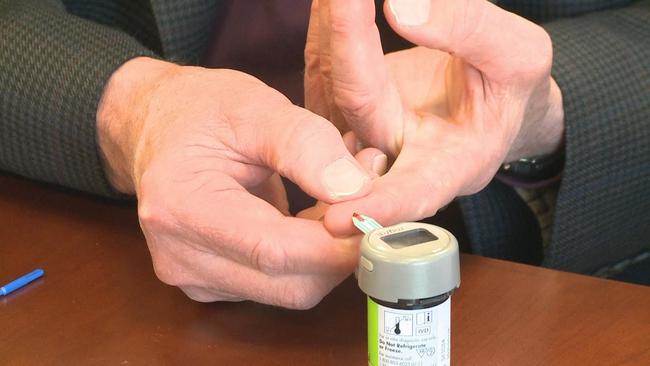We live in a fast paced world and always want to be ahead. A busy life, cut throat competition, and the urge to succeed are some of the ill effects of a city life which brings with them health issues. Stress, depression, irregular eating habits ruin our health to an extent that we develop ailments unknowingly and at an early age. Diabetes, known to affect only at old age is now seen prevalent even in children. So what actually is responsible for its occurrence – a bad diet or an unhealthy habit? Is there a permanent cure for diabetes? There are lots of queries like this unanswered.
Diabetes is a condition that marks its occurrence when the body fails in producing optimum hormone insulin, or the insulin is not used in the right manner.This disorder, if not taken care of at the right time, might lead to blindness, heart attacks, kidney failures and even amputations. Many ignore the early symptoms of diabetes, often mistaking them as symptoms of other harmless ailments. Some of the symptoms of diabetes are extreme hunger, frequent urination, dry itchy skin, and unexplained weight loss. But a detailed study would unveil a lot more.
Diabetes has its own warning calls. Attend them as soon as you find:
1. Type 1 symptoms: In type 1 diabetes, the body fails to produce enough insulin for unhindered metabolism. Symptoms include increased thirst, vomiting, and dry skin. Constant urination, hunger, dry skin are the harsher consequences.
2. Type 2 symptoms: In the type 2 diabetes, plenty of insulin is produced but body fails to use it to the utmost efficiency and blood sugar levels rise to noteworthy levels. Symptoms include numbness of hands, tiredness, and delayed healing of wounds.
In addition to the above symptoms, following are some of the other symptoms which can be taken care of at the earliest and detecting diabetes:
1. Frequent urination, thirst, and blurry vision:
These are the three most common symptoms that mark the onset of diabetes and notify the dangerous rise in blood sugar levels. Depending on the levels of blood sugar, an appropriate treatment might fix the problem or minimize its repercussions. If left untreated fatal conditions of type 1 and type 2 diabetes can cause the distortion of the normal bodily metabolism.
2. Acute weakness in the body:
Diabetes might result in acute weakness which may result in helplessness of the patient to do anything. In such a case, a helper has to hand him over a glass of juice or similar drinks to normalize the sugar levels, before it gets too late. Immediate medication is suggested to persistent conditions.
3. Infections, swollen and bleeding gums and foot sores:
Often a diabetic would notice delayed healing of wounds and associated infections. Fungal infections are a common occurrence in diabetic patients owing to the disturbed blood sugar levels. A red, itchy rash especially in the moist areas such as skin folds can trigger fungal infection. Infections in patients have often been witnessed going out of control; hence it is better to treat them early. Patients are advised to monitor their foot on a frequent basis for sores and bathe their feet in warm water and apply moisturizer to prevent drying of skin which may otherwise form cracks and lead to infections.
4. Eye problems including ‘Floaters’:
A noticeable symptom of diabetes would be discomforted vision,eye pain and spots flowing in the field of vision. Retinopathy is an unwell eye condition and a patient suffering from such disorders needs to visit an ophthalmologist. Untreated conditions might lead to vision loss.
5. Heart diseases graver than chest pain:
Cardiovascular disease is another threat a diabetic patient is exposed to and pertains twice the normal risks of emergencies such as heart attacks and strokes. Any discomfort in the chest should be subjected to treatment and diagnosis although at times heart ailments could occur without any general symptoms. Hence a visit to doctor is advised to even the most minor occurrence of cardiac dysfunction.
Precautions:
Diabetes can be prevented or at least can be controlled by following the given methods:
1. Diet and exercise
2. Diet and oral drugs
3.Diet and insulin.
Therefore, in each of the three cases diet plays a vital role. In all types of diabetes, the amount and form of food intake (especially carbohydrates) should be kept under control. Irregularity of meals must be avoided. Diabetics should avoid fasts and starvation and should include regular exercises in the daily health regime.




